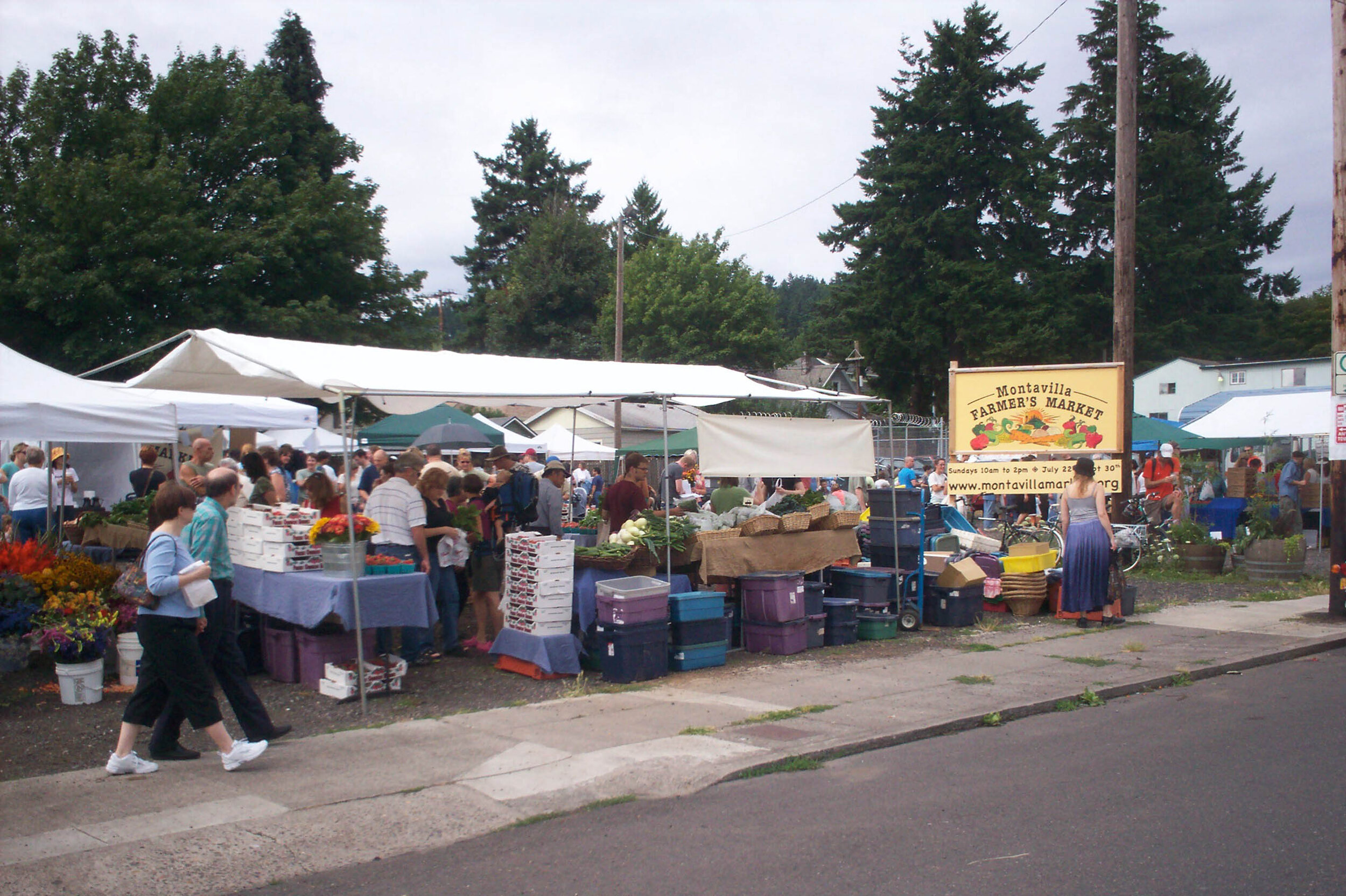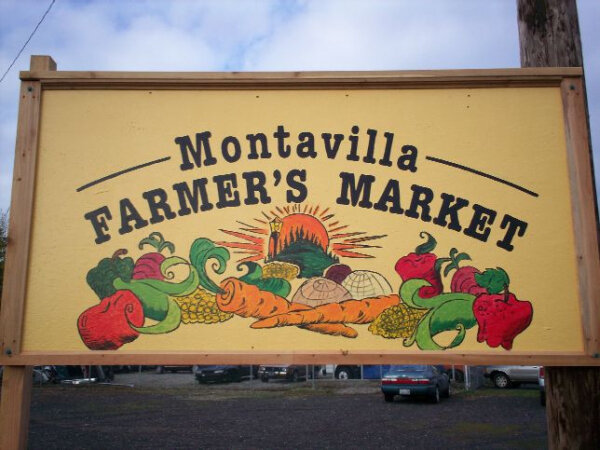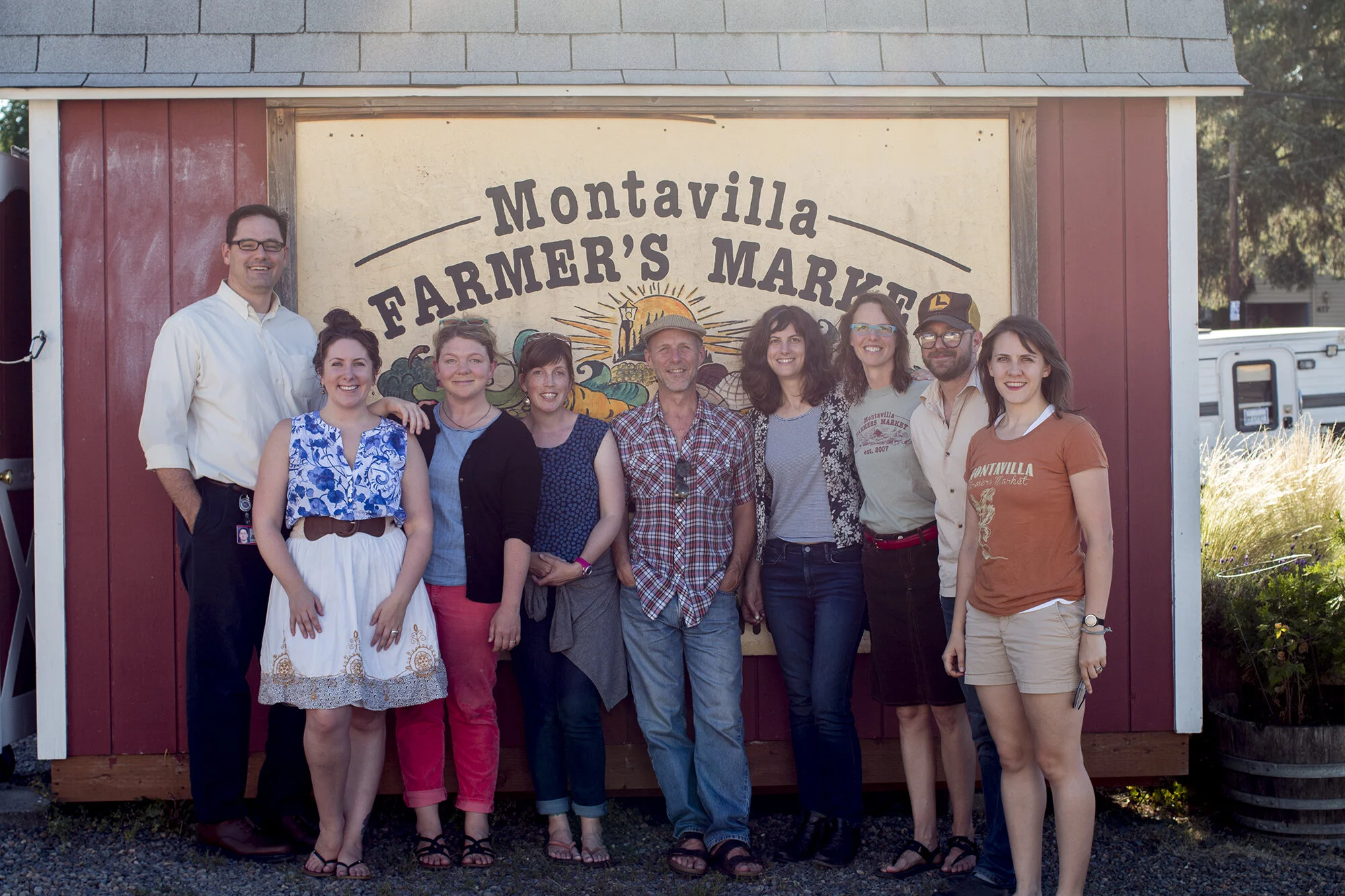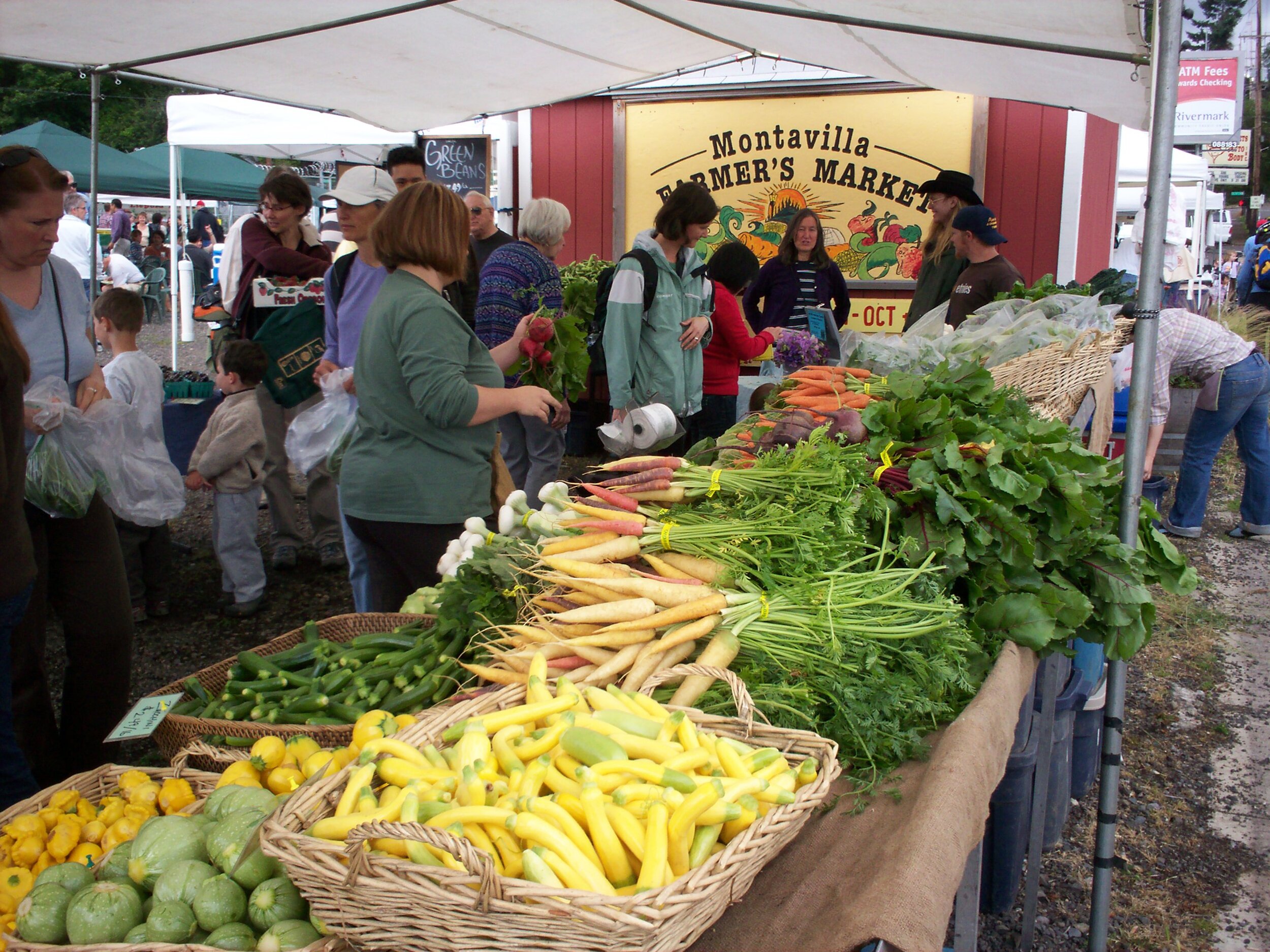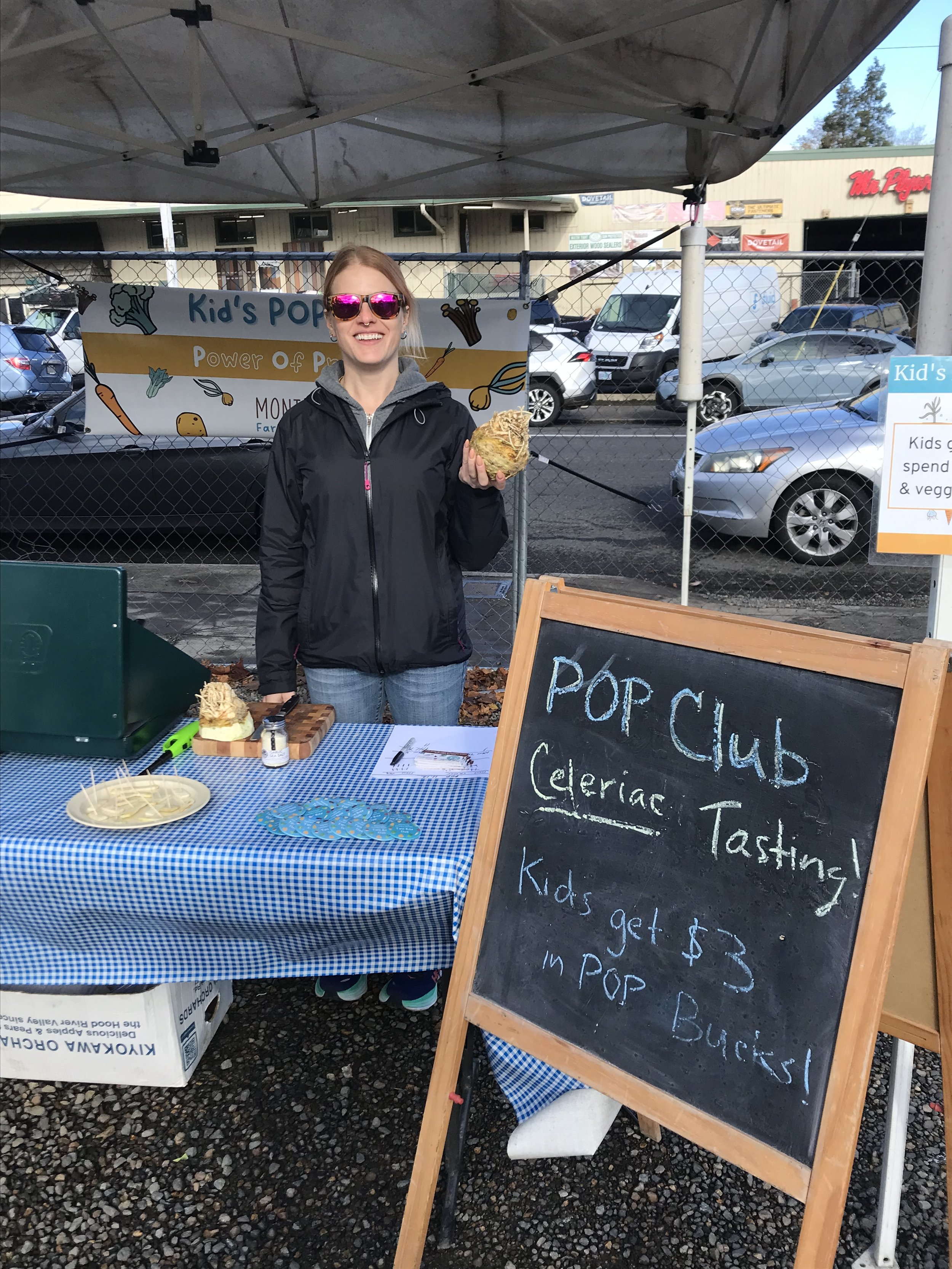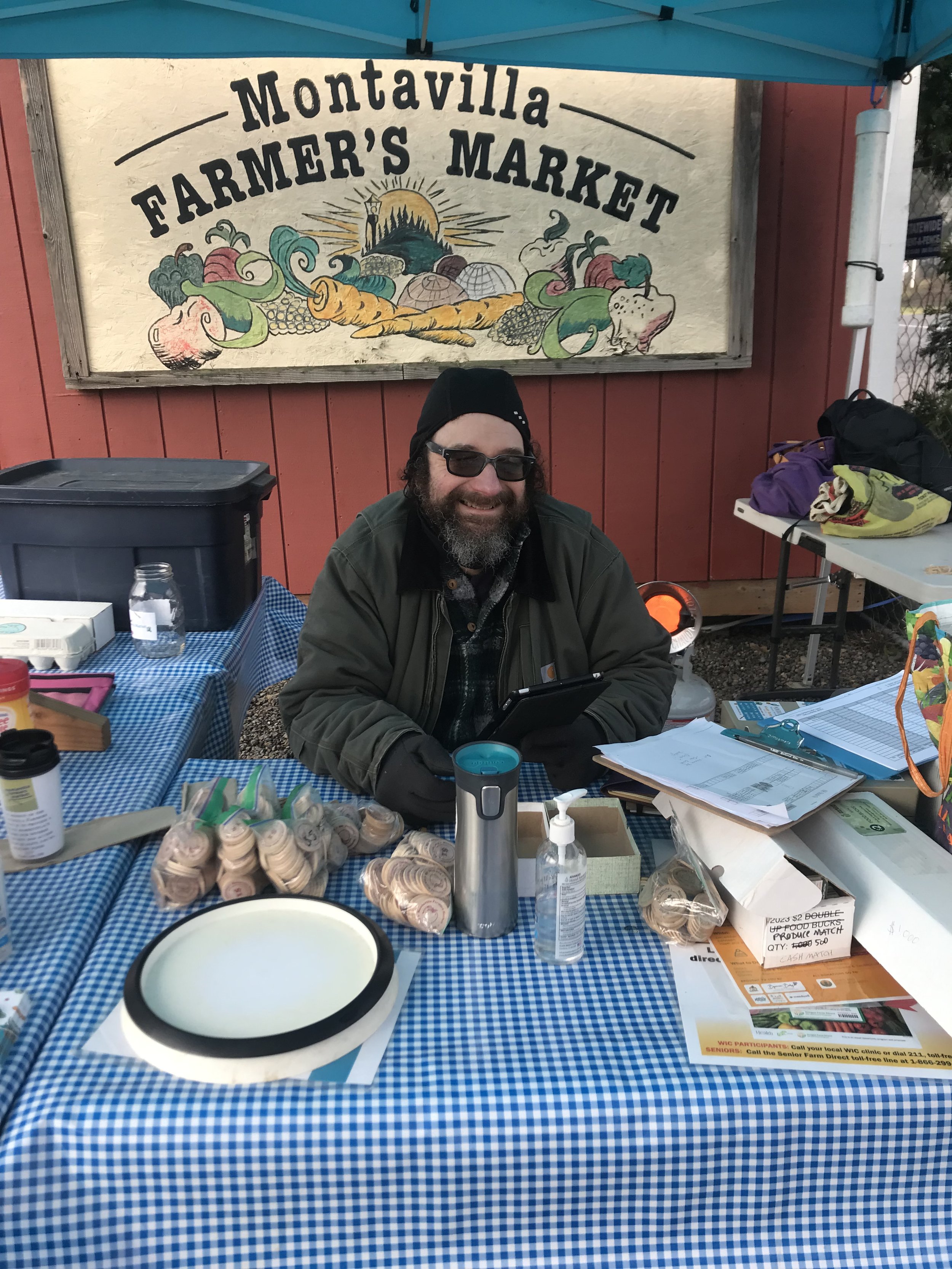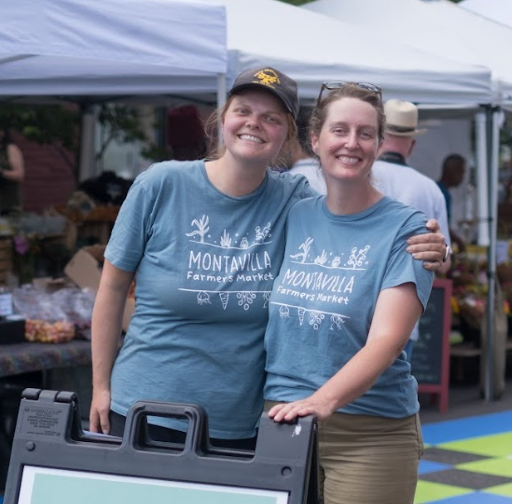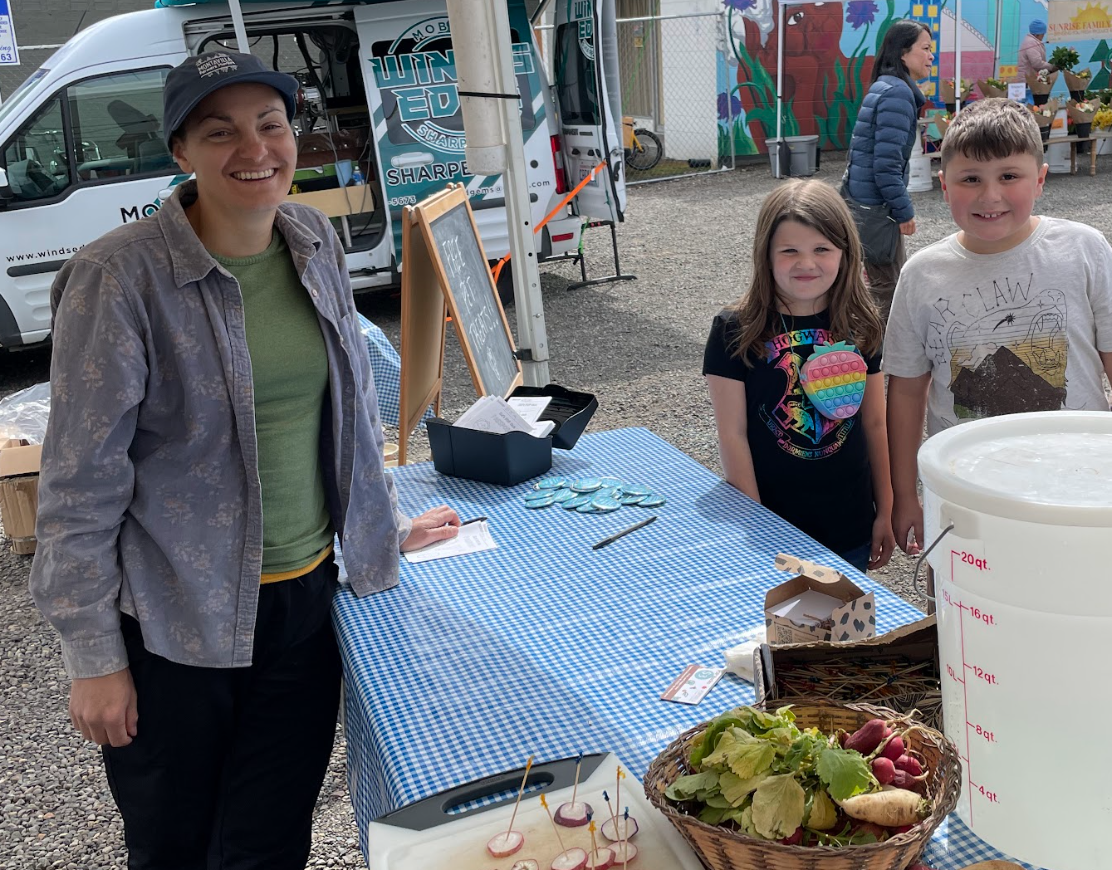Our Roots
The market was founded by a grassroots collection of neighbors who were inspired by visions of a fresh, local, food market in a shared community space within the growing SE Stark Street business district. This dedicated group opened the market in just 10 short months with a small amount of grant funds and a generous outpouring of donations from local businesses, friends and neighbors. The tireless energy of these un-paid visionaries and countless other volunteers allowed MFM to open its first market on Sunday, July 22, 2007 with 17 vendors and over 2000 visitors!
Mission and Guiding Principles
The mission of the Montavilla Farmers Market is to provide a vibrant marketplace where our diverse community has access to high quality, local, healthy food. We create opportunities for our vendors and customers to support and learn from each other, which strengthens our local economy.
The Montavilla Farmers Market values the following principles for our vendors, volunteers, board, and staff:
Respect, dignity, and equity
Nourishment, wellness, and health
Sustainability
Creativity, innovation, and an entrepreneurial spirit
Professionalism
Celebration, gratitude, and recognition
Volunteerism and partnerships
Fairness and affordability
Our Commitment To Equity
Updated January 2025
Montavilla Farmers Market is committed to working toward a more equitable, inclusive and anti-racist marketplace. We strive to create an environment where people have access to local food that's relevant to their culture. We provide opportunities for small businesses by actively lowering barriers put in place by systemic racism and oppression. In addition, we seek to shift our internal positions of power to reflect the community we serve. This work is focused on changing both Montavilla Farmers Market and farmers markets system-wide.
In our work towards these goals, we:
Actively learn about and implement anti-racism in our work, hiring, recruiting, and policies.
Support entrepreneurism.
Increase food accessibility.
Seek partnerships and funding opportunities to implement equitable and inclusive projects/programs.
Distribute materials and outcomes that can benefit all Oregon farmers markets.
This work is ongoing. We acknowledge historic and prevailing systems of oppression in the food system and within our community. Feedback is valued, and we are still aspiring to learn and implement more ways to listen and take action.
This living document is intended to keep Montavilla Farmers Market accountable for our actions and policies. It is meant to guide market staff and board members to continually work towards a more equitable marketplace and food system. Our organization will continue to evaluate our goals and actions each winter before we open the vendor application.
Land Acknowledgement
Montavilla Farmers Market takes place on stolen and occupied land with a history of genocide, ethnic-cleansing and the forceful removal of the Native Peoples. "The Portland Metro Area rests on the traditional village sites of the Multnomah, Wasco, Cowlitz, Kathlamet, Clackamas, Bands of Chinook, Tualatin, Kalapuya, Molalla, and many other tribes who made their homes along the Columbia River creating communities and summer encampments to harvest and use the plentiful natural resources of the area" (Portland Indian Leaders Roundtable, 2018). Today, there is a vibrant Native American community currently in Portland, representing over 380 federally recognized Tribes.
Learn More:
The Confederated Tribes of the Grand Ronde: Our Story
Leading With Tradition: Native American Community in the Portland Metropolitan Area
Making the Invisible, Visible: Portland’s Native American Community
A Brief History of Japanese Farmers in Montavilla
“Although it is now not readily apparent, Montavilla and east Multnomah County were once where many Japanese American communities lived and worked, played pool, attended Japanese language schools, picked strawberries, and played a significant and underrepresented role in Oregon’s agricultural industries and the development of the east Multnomah county area.” –East Portland Farmers; a digital collage by Lynn Yarne located at the APANO Orchards of 82nd Community and Event Space
Members of Hood Sadaji Shiogi’s family picking berries. The Shiogi family owned farmland in Montavilla, Oregon, and leased land in Troutdale, Oregon [Photo taken from Capturing Community in SE Portland]
Pre-World War II, much of Montavilla as we know it was farmland. As early as 1908 there were thirty-six Japanese farmers who held a total of 665 acres. By 1920, 90% of the strawberry farmland and 60% of the vegetable farmland was owned by Japanese Americans. There were many markets in the area selling locally grown produce like the Russelville Market on 103rd and Stark, creating a community hub for many Japanese Americans in the area.
Because of Executive Order 9066, issued at the beginning of WWII, More than 125,000 Japanese Americans were incarcerated throughout the United States. At the end of April 1942, all persons of Japanese ancestry in the Portland area were forced to leave their land and possessions. They were taken to a former stockyard, now the Portland Expo Center, while an internment camp was being built in Idaho. By the time the incarcerees were finally freed, land was taken and urbanization of the Montavilla area had begun.
There are still remnants of apple orchards once tended by Japanese American farmers found in the PCC SE campus. Explore the projects celebrating Japanese American history in SE Portland below.
Learn More:
Celebration of Japanese Communities and Farmers in SE Portland
Capturing Community in SE Portland
Soil from Portland helps memorialize Japanese Americans incarcerated during WWII
More Learning Opportunities:
OSU: Oregon Food and Farm History
Documenting Oregon’s Latino Heritage: The Braceros in Oregon Photograph Collection
Pineros Y Campesinos Unidos del Noroeste (PCUN)
New digital images reveal the lives of early Black Oregon residents

